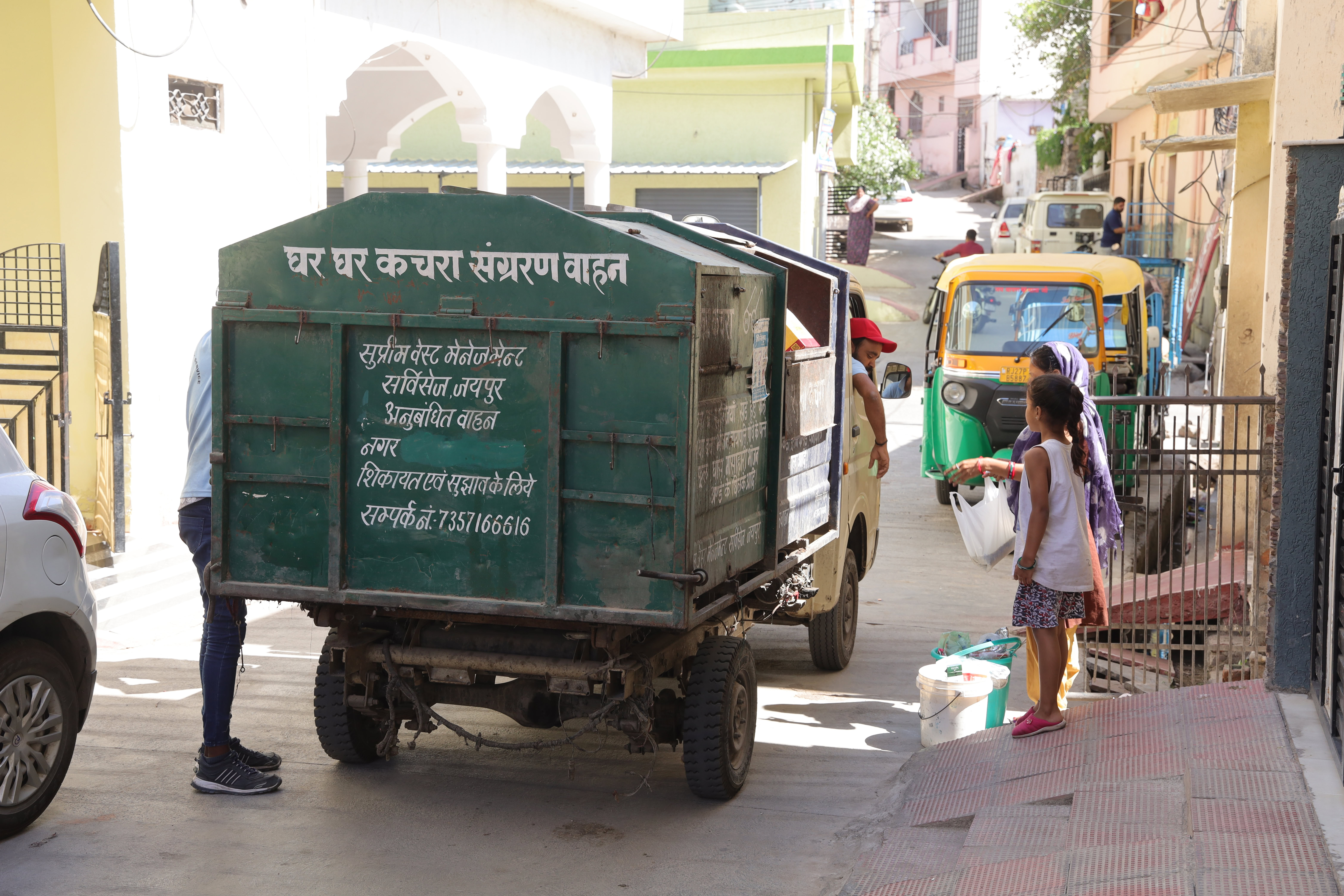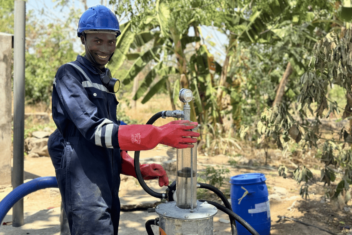Celebrating Earth Day | Improving livelihoods and reducing pollution

According to the United Nations Development Programme (UNDP), India generates 15 million tonnes of plastic annually yet only one fourth is recycled. Plastic waste is mostly dumped in the open or burnt, causing local environmental pollution and health issues. What’s more, waste workers who work daily to help solve this plastic problem face significant health issues and are unable to earn a decent living.
Growing need for answers
This Earth Day we invite you to follow the journey of plastic waste through our FINILOOP programme, as we work to improve the livelihoods of some of India’s most vulnerable people while helping solve plastic pollution. A programme made possible by working together with the IKEA Foundation and local partners, TOP and AspireLabs.
So, how does it work?
At the heart of FINILOOP is a multi-stakeholder approach. The programme does not create new infrastructure but instead identifies, assembles and harmonises all the existing stakeholders within a city’s waste management system to increase effectiveness and ensure sustainability.
The programme starts, therefore, with identifying all the actors within a city’s waste management system, and how they interact with each other throughout the journey of plastic waste. Then each actor along the journey is supported with different solutions.
Awareness and action at the household level
One crucial step is at the household level to encourage communities to separate waste at the source. Separating waste correctly (from shampoo bottles to food waste), minimises the amount of waste which is sent to landfills and increases the quality and quantity of waste which continues on its recycling journey.
FINILOOP helps establish plastic collection systems in schools, community clean-up events, and door-to-door campaigns on separation at source practices.Since the start of the programme, nearly 50,000 households and 6,418 non-household establishments have been reached and 135 local community committees have been formed to help clean up local areas.
As communities improve their waste separation, higher quality plastic waste in increased quantities is funnelled into the waste value chain and into the hands of aggregators who are able to sell the plastic for money to the next actor in the waste value chain.

Informal waste workers collect and sort plastic waste
Informal waste workers play a key role in plastic waste management – they collect plastic waste from the environment and sell it on to aggregators. Unfortunately, they are undervalued, struggle to earn a decent living and face dangerous working conditions.
FINILOOP is changing this by building trust with the informal waste worker community, improving working conditions, and providing skills training and access to vital services, such as healthcare and social security benefits. With training and tools to increase their productivity, informal waste workers are able to collect and process more high-quality plastic waste and with additional skills training, they are able to diversify their income through alternative job opportunities, such as selling compost or producing cotton bags.
So far, 60 informal waste workers have received alternative livelihood training, 216 women have had financial literacy training and 166 children of informal waste workers are now able to access education. Additionally, 1,916 workers have received health check-ups and 349 now have health insurance, bank accounts and identification cards. These cards are particularly important as they help to formalise waste workers position in society and enable access to vital social security benefits, for example, three bus journeys per day and 5kg of rice or lentils per month.
Waste enterprises process plastic waste
To boost the local circular economy and address gaps in the plastic waste management system, FINILOOP provides business development support to existing plastic waste enterprises including aggregators, apex traders and recycling enterprises. This includes bridging technical and environmental knowledge gaps, providing access to funding, raising awareness of government schemes and fostering key partnerships.
More than 20 existing enterprises have received coaching since the programme started. As a result of this support, enterprises can increase their capacity to recycle plastic waste, ensuring less plastic waste ends up polluting the environment. And, as their capacity to process plastic waste increases, so too does their income, the working conditions of workers and the amount of jobs they provide, including to informal waste workers who in the past may not have had access to these jobs.
New products are created from recycled and sorted plastic
To foster innovation and drive positive change FINILOOP provides mentorship to start-ups who are catalysing solutions to difficult to recycle plastic waste, as well as start-ups working with alternatives to plastics and overall city-level waste management challenges.
The FINILOOP Plastic Lab currently supports 17 plastic waste start-ups who have the potential to recycle an additional 458 tonnes of plastic waste per year. As the start-ups scale up their businesses, many new jobs are created, recycled plastic is given a new life and the amount of plastic waste collected and recycled increases.
A greener cycle starts
The journey of plastic waste is one which touches many hands and lives. Through strengthening and connecting each step of this journey, we are helping create resilient plastic waste free cities. Cities where the streets are free of plastic waste, waste workers are valued and able to support their families, green enterprises are thriving and fuelling the circular economy, and communities are working together to care for their environment.
Glimpse into the journey below and see FINILOOP in action.
Join us as we work to transform how waste is handled for the benefit of people and planet. Contact our FINILOOP team today: [email protected].
Written in collaboration with the IKEA Foundation.


